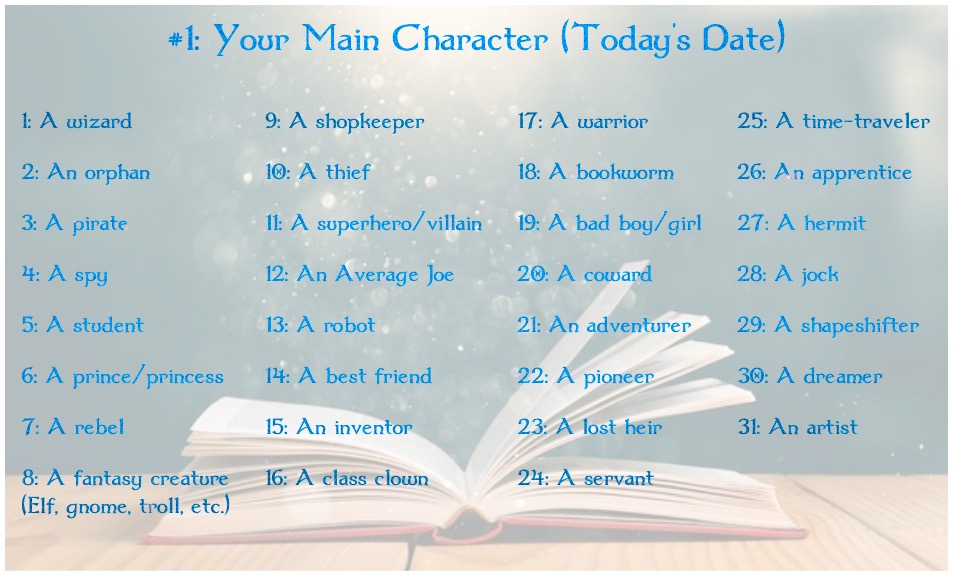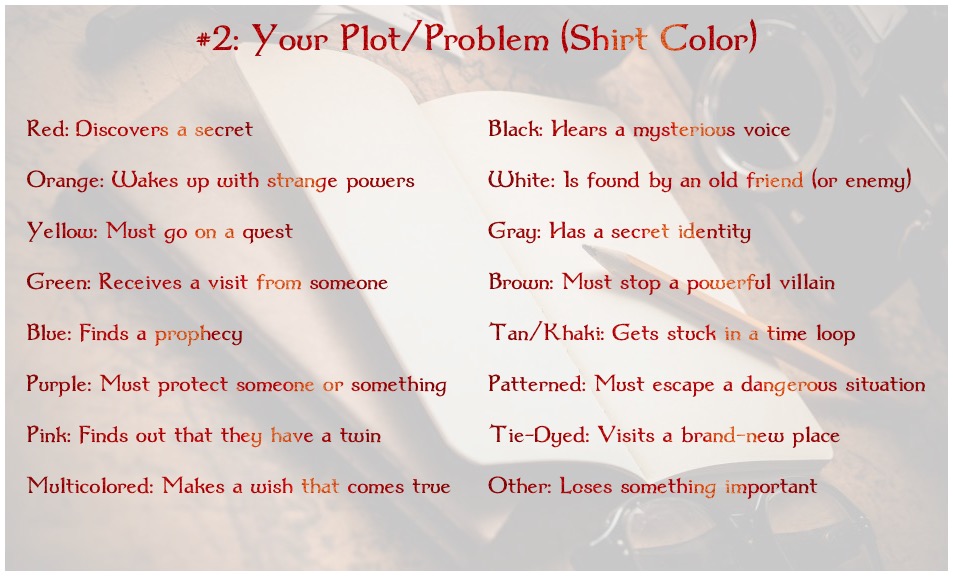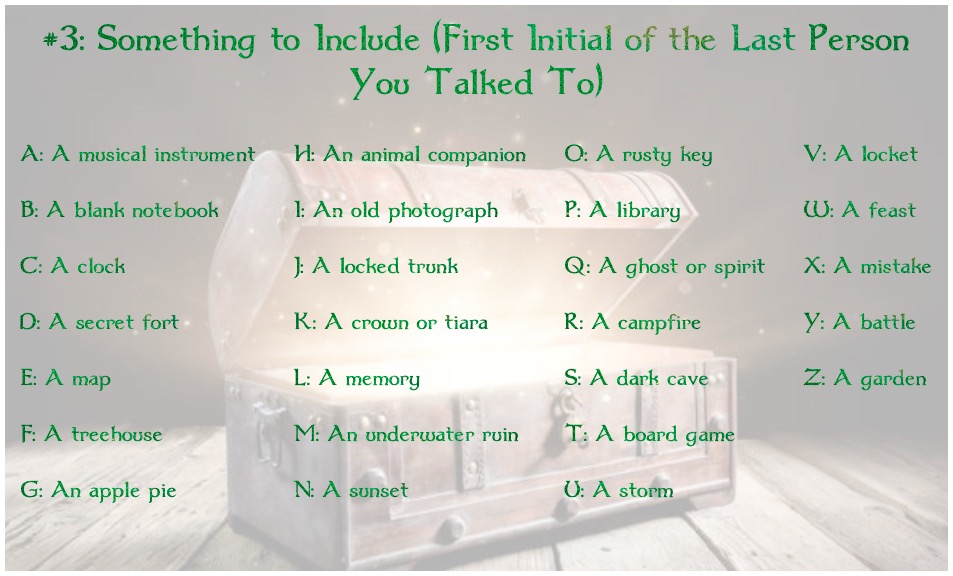I’ve done storytelling exercises where each person or group gets the same prompt — like a word, a starting sentence, or an object — and then has to write a story based on that prompt. At the end, everyone shares their stories, and it’s fun to see how different they are! You have your own ideas and experiences that will make your stories one-of-a-kind, even if you start in the same place as someone else. Who knows — maybe someday I’ll be visiting your website!
Coming up with your own story can be really hard, but here are some ways to spark your imagination if you’re stuck. You can make up your own characters (click here if you want some help) or take a page from the Worm Squad’s book and make yourself the hero!
You can use this index to jump to the type of starter you’d like to use, or feel free to scroll all the way through and see what inspires you. Don’t forget the most important thing: Have fun! 🙂
(You can also follow me on social media for weekly writing prompts! Check my contact page for details!)
1. Sentence starters
2. Plot concepts
3. Combining pieces
4. Mixing genres
5. Story generator
1. Sentence starters (return to top)
Sometimes a good first sentence is all you need to get going! Where do you think these stories go next?
•It was Friday the 13th, and I had already forgotten my math book at home.
•My suitcase was so full that it almost wouldn’t close.
•I looked through my telescope, and I couldn’t believe what I saw.
•I was just about to leave when the doorbell rang.
•I was glad that it was sunny when I woke up.
•In the blink of an eye, everything changed.
•Five more minutes and we’d be free for winter vacation.
•I could tell from the cover that this video game was going to be awesome.
•My parents had always told me to stay out of the attic, but they weren’t home yet.
•I checked my inbox — there was the email I’d been waiting for!
2. Plot concepts (return to top)
These prompts offer suggestions for something that happens in your story. What do you think your character would do in these situations?
•Your character is exploring a mansion and finds a secret passage.
•Your character receives a mysterious letter in the mail.
•It’s your character’s first day at a new school or job.
•Your character opens a drawer and finds something unexpected.
•Your character wakes up and suddenly can see the future.
•Your character is just about to have dinner when the phone rings.
•Your character is riding in the car, but they don’t recognize where they’re going.
•The dream that your character had last night seems to be coming true.
•While on a scavenger hunt, your character finds something valuable.
•Your character finds themselves 100 years in the past or future.
3. Combining pieces (return to top)
Some stories are created by figuring out how different things could go together. Pick one of these groups and try to write a story that uses all three things!
•A box of cereal, a birthday card, and a pair of glasses
•Hot chocolate, a jigsaw puzzle, and a bird feeder
•An airplane ticket, a roommate, and a bag of arcade tickets
•A bean bag chair, some unfinished homework, and a fortune cookie
•A snow globe, a surprising email, and a movie night
•A potted plant, a water balloon fight, and a rubber chicken
•A road trip, a pocket watch, and some colored pencils
•An ice cream sundae, some trading cards, and a family secret
•A stained glass window, a bowl of macaroni and cheese, and a bicycle
•A mirror, a basket of blueberries, and a new pair of shoes
4. Mixing genres (return to top)
What would happen if elves and gnomes started exploring the stars? What if cowboys went into a haunted house? Some stories take two different styles and mash them together to create something new. Here are a few different genres that you can play with:
•Adventure: These exciting stories are usually about quests, battles, chases, and exploration.
•Fairy tales: Lots of stories are based on familiar fairy tales. Try rewriting your favorite tale with a new setting!
•Fantasy: These are stories about kingdoms and mythical lands. They might even include creatures like dragons, fairies, dwarfs, or ogres!
•Historical fiction: These are fictional stories that are set during real historical events. They may or may not include famous historical figures.
•Horror: These spooky stories can be set in old ghost towns or haunted houses where unexplainable things happen.
•Mystery: These stories have some kind of puzzle to be solved, and readers can collect clues along the way.
•Nonfiction: Nonfiction stories are, by definition, true, but sometimes real life is stranger than fiction! Maybe the “plot” of something that happened to you (or someone you know) would make a good story.
•Realistic fiction: This type of story takes place in the real world, but the people and events are made up.
•Romance: Love stories come in all forms! Sometimes characters know that they want to be together, and sometimes they start out hating each other.
•Science fiction: Sometimes sci-fi means traveling through space and visiting other planets, and other times it means surviving in a barren land.
5. Story generator (return to top)
I have to admit, I love these things. I can never resist finding out what I get! These three prompts work together to give you a character, a problem, and an item for your story. I designed them so that they’ll give you a different plot every day — if you don’t like what you get, you can always try again!


